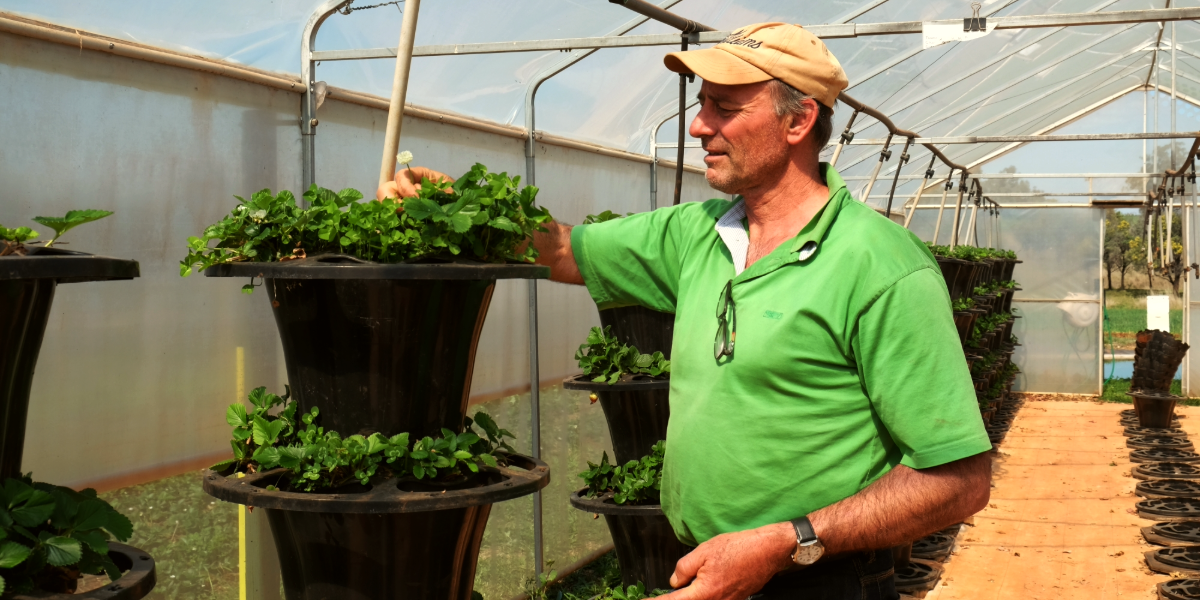Just a short drive west of Inverell sits a property with aspirations to make sustainable, healthy eating attainable for everybody, and to take that model and share it across Australia.
Evergrow Componics Farm is 50 acres of diverse, interconnected practices designed by Steve Bigg and Alison Heagney. They have invested their heads and hearts in the project, with an intent to develop achievable, semi-intensive practices for everyday people to produce healthy food from start to finish.
“Componics model is community, complete, and then compost. It’s a complete model, fitting in all the regenerative, sustainable practices, as much as we can,” Steve said.
The centrepiece of the farm is the Evergrow Farm Hub, a grand communal structure Steve purpose-built. From the large windows and big, sliding wood doors, visitors can look out toward the vegetable patches, grow houses, Dexter cattle, Saanen and British Alpine dairy goats, and flocks of heritage breed chooks, each connecting back to Evergrow’s intent.
“Good food,” Alison said.
“Showing people that have bought a block of land, that have an aspiration to look after themselves.”
“Within the model, they might say, I just want to do chooks,’ and we can say, ‘We’ll show you how to do chooks,’ without having it cost a fortune.”
The couple host farm visits for groups, while developing demonstrations to share with people keen to grow their own vegetables, from seed saving, propagation to harvest, water recycling, raising animals for milk, eggs, and meat, keeping worm farms, and creating compost and topsoil to cycle back into the farm.
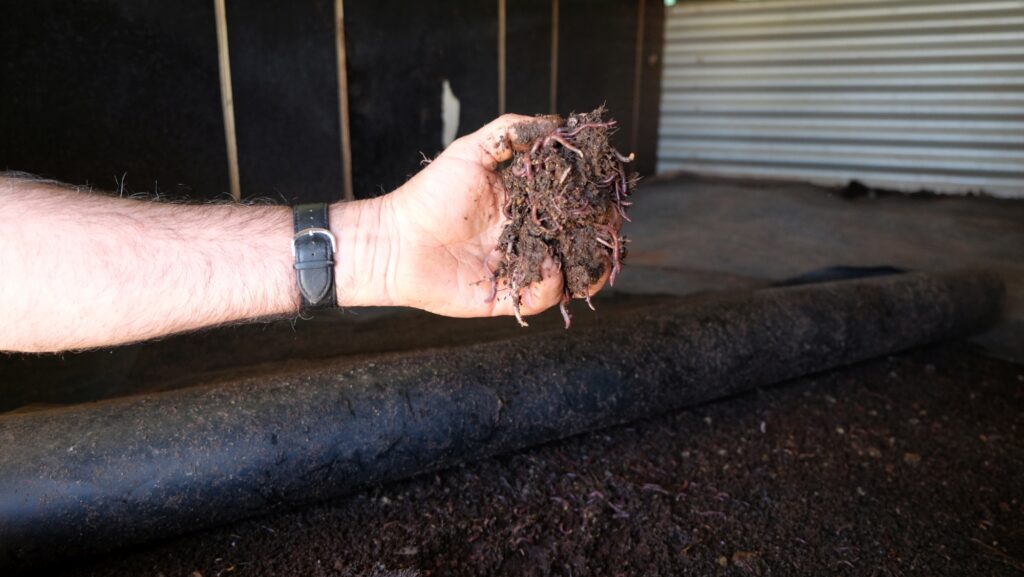
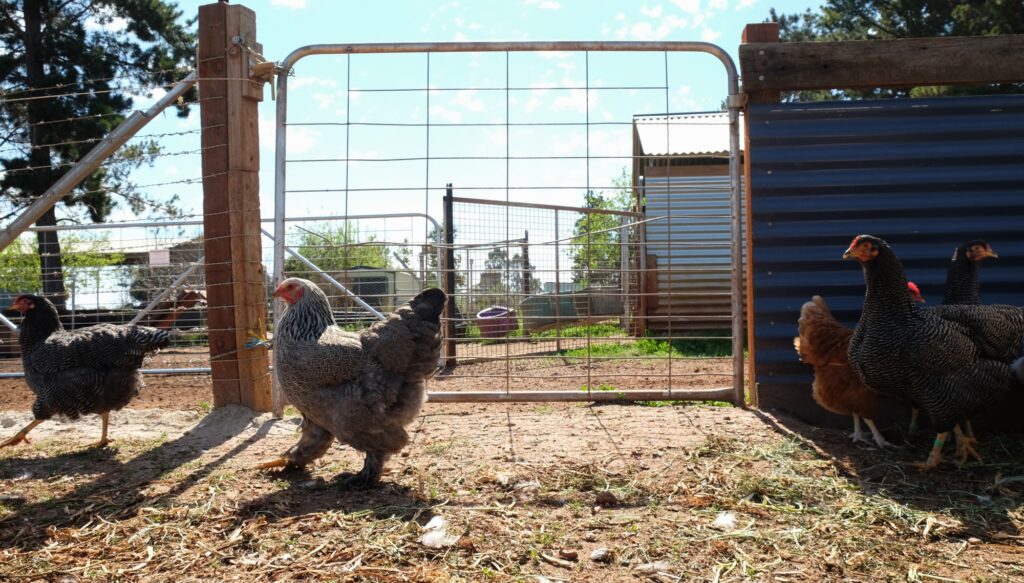
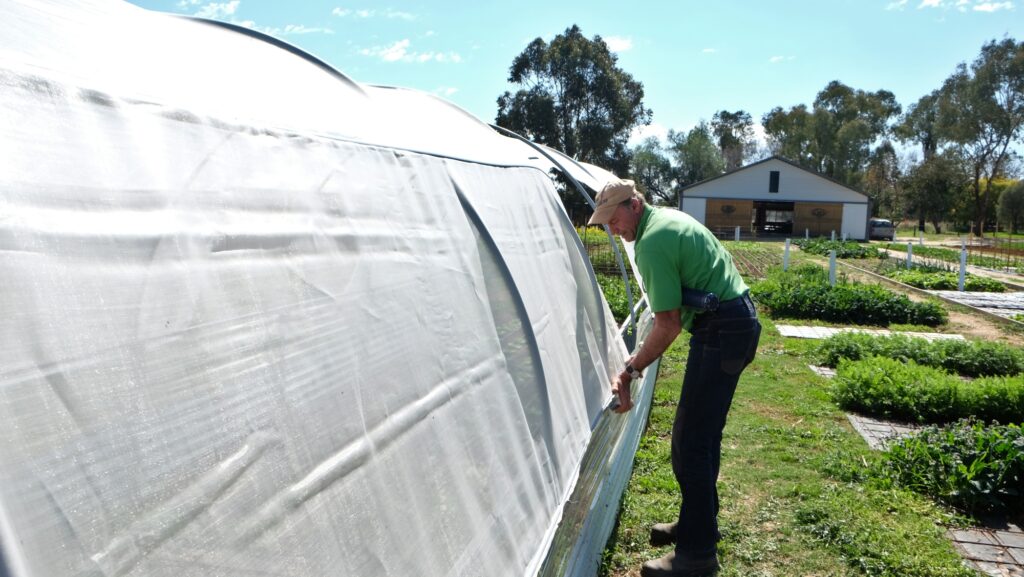
All these practices happen on Evergrow.
They currently supply their produce to vendors like Funki Munki in Inverell, or cater bread for events. But the eventual plan will centre on Evergrow itself as the vendor, and the model duplicated nationally. They are currently developing the infrastructure to provide weekly food box subscriptions.
“We plan on 100 food boxes a week to go out of Evergrow Farm,” Steve said.
“And that includes a combination of all of your fresh produce, baked goods, poultry and some dairy eggs. And the challenge is that that would be able to be done all year round. But over and above that, the model, when perfected, we want to get investors and then make. Build properties around Australia.”
Complete with comfortable couches and chairs, tables, a full kitchen and clay oven where Alison makes her sourdough bread and pizzas, the Evergrow Hub is the heart of education and experience for visitors and community. In the end, it all comes back to providing homesteading beginners, people on the land or in town, or transitional farmers, the step-by-step support to grow their own healthy food.
Meeting over a shared vision
Steve and Alison met at a food forum on NSW coast eight years ago. Alison was presenting on a food product she had developed for retail markets, and Steve was speaking on Componics, which is the driving force behind Evergrow today.
They bonded over the concepts behind sustainably producing and providing good, healthy food and moved forward to build a life together. They both had roots in the New England and were drawn back to the area.
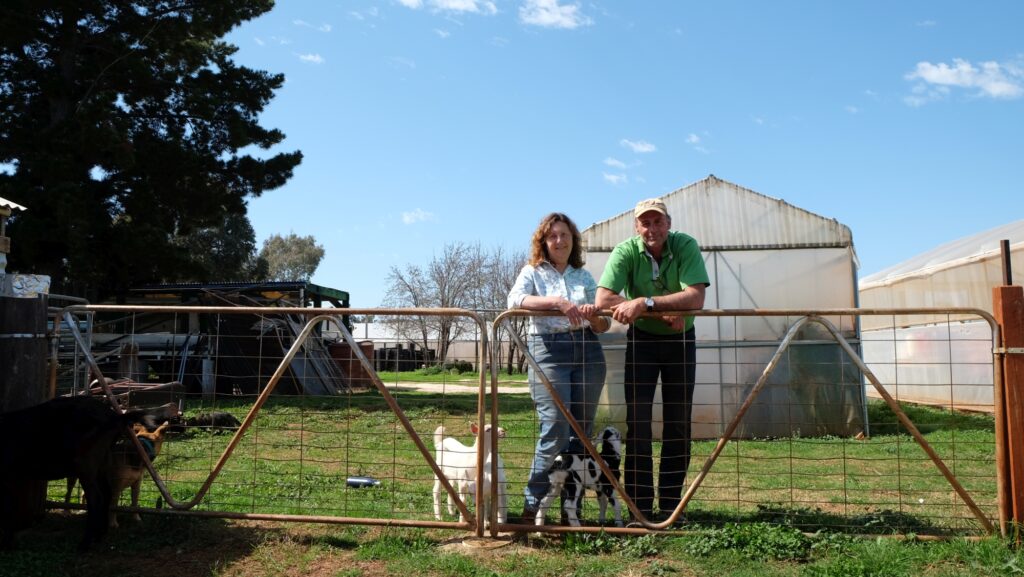
With a young child in the family, Alison felt she wanted to give her son a different life to the surf culture on the coast and reclaim a rural life on the land.
“Steve was at Kempsey, I was at Mullaway, but I grew up east of Guyra on a farm,” Alison said. “Steve’s family roots were Armidale,” Alison said.
“I wanted to get back into farming somehow, and Steve has always been into farming, doing up properties, and he’s a prolific inventor, and a very good inventor.”
They settled at Little Plain at the start of the 2017 drought which battered them with immediate challenges. Alison took a job as executive officer of the Northern Inland Community College, which came with the benefit of connecting to people across the region. That experience provided additional insight toward the Evergrow vision.
“I think the biggest thing people are missing is connection. And we want people to connect and create their own little communities wherever there’s an Evergrow farm hub. And have good food. Wholesome – really wholesome time, kids can play outside,” she said.
Showcasing the Evergrow Model
The project has been under development for several years, now reaching a point of demonstratable production, and integrates Steve and Alison’s innovations across the farm. A wearer of many hats prior to settling in Little Plain, Steve is constantly thinking of ways to create user-friendly methods to achieve their goals.
One is his patented Verti-Pot invention, a stacked growing system for vegetables and fruit. Evergrow uses this stable, stacked potting system in their own intensive grow houses, with leagues of strawberries currently flourishing, and tomatoes and other summer crops soon to be planted. The design is for both the rural and urban gardener.
They have developed modular, clip-mounted grow houses with sliding shadecloth and netting on runners to protect vegetables from harsh weather and animal impact.
“So he’s designed it to be flat-packed, and modular,” Alison said. “So a farmer worth their salt out west, instead of buying in pallets of veggies – they can put that up. They can build that, and the station’s got their veggies.”
He’s built a mobile chicken house, able to house 200 layer birds overnight, with nesting boxes, egg-chutes, and removable trays to catch manure, destined to be cycled into the compost piles. He is still perfecting the design so he can pass the knowledge on.
They both consider historical agricultural production and husbandry practices, then integrate new methods in line with their vision, teaching themselves all the time, and learning from their experience.
But the main intent is providing a clear path toward self-sufficiency for food security at many levels. The couple are developing ways that can be adopted by everyday people looking to either have a veggie patch on a city balcony or strike out as a homesteader on their own patch, using space to its best potential.
Inspirations and Accessibility
Alison said she has been inspired by a model developed by Spence Farm in Illinois in the US. Generational famers Marty and Will Travis and their families have developed a holistic, responsive agricultural model which is self-sustaining, provides instructional support, and work as part of a larger network of similar farms intent on feeding themselves, and sharing with others, making money from semi-intensive sustainable production by selling produce to vendors and restaurants across the Midwest.
Through their research, trials, educational programs and consulting, they aim to jumpstart family farms, often on the brink of bankruptcy due to economic failure.
“They’ve decided we can’t grow everything ourselves,” Alison explained.
“(They say) we’ll reach out to the younger generation that don’t want to work in the corporate world. They just want to do something on their farm, but they don’t want to do it the way mum and dad do.
“So they say, ‘What’s on your farm? Have you got an old veggie patch? Have you got an old orchard?’ And they help them to reinvigorate that, create income.
“So they’re huge compared to us, but they’re creating income for those farms that are on the edge of foreclosure.”
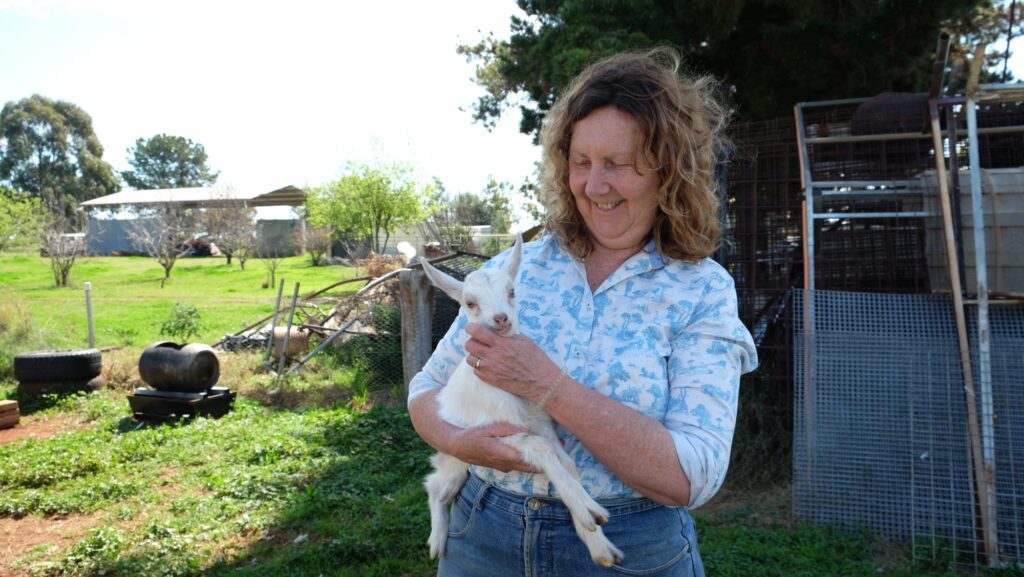
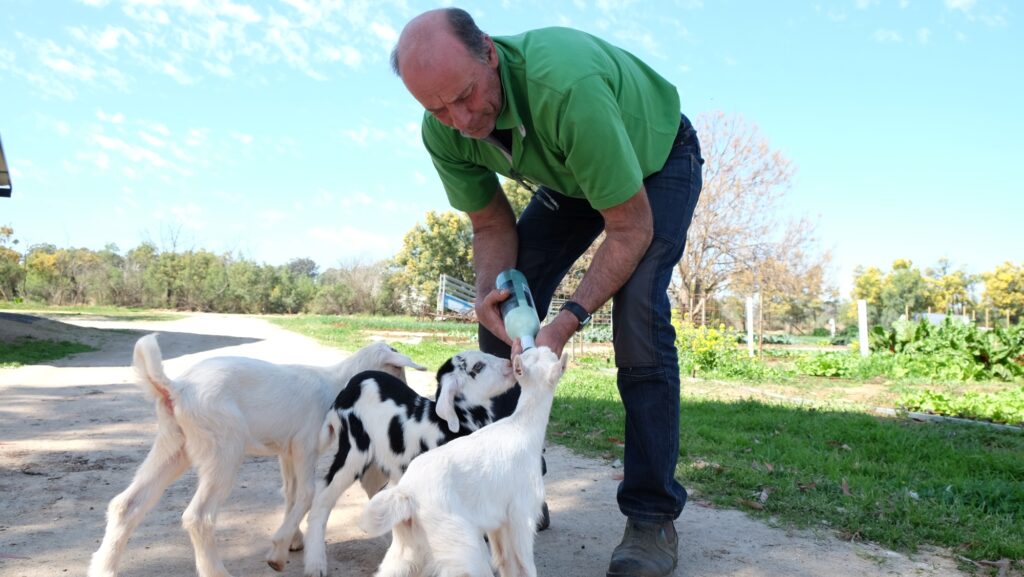
Accessibility is key to their approach. Steve said he relies on repeatable, modular concepts throughout all aspects of production because of its versatility. It helps in the larger scheme of their integral farm management.
“Everything we’re doing is a science,” Steve explained.
“You try to do dairy and cattle, poultry and produce, all the kinds of vertical growing we’re doing. We’re constantly developing infrastructure and work methods to make it flow. It has to be really economic. It has to be user-friendly, people-friendly, animal-friendly, weather-friendly. It’s a lot.
“So everything on this farm as at prototype level, and it’s to be perfected through to a finished state, so that would include a farm hub, a combination of growing methods, including horizontal and vertical, and then the complex as a training centre – for all of the skills that people would love to do, and find it hard to find a venue and a trainer to do that.”
Summer at Evergrow
With the early heat and heavy winter rains across the New England, the farm is responding sooner than anticipated, and the couple are madly planning for the season ahead. They are both ramping up to vertically plant hundreds of tomato seedlings in the growhouses and preparing plots. And Alison is looking ahead to their next farm tour day.
“I don’t ask for bookings up front. It’s out of trust, and its $50, they get the pizza and the tour, and they can stay as long as they like. And they love it,” Alison said.
“We did design this to be good for all generations, because we’re really conscious about the older farmers wanting to come back out to the farm, and for the mums to see their kids run, because I was a single mum, and I understood that stress about going anywhere with the kids.
“So making it relaxing, they can see everything, and the farmers can critique.”
She said their first tour had 17 families, some coming along with three generations. It reflected the Evergrow vision of learning from the past to influence the future; something the couple are ever conscious of as they develop Evergrow.
“We’re humans,” Steve summed up.
“We go through stages in life and at middle-aged stage, you should be passing on something to the next generation. We’re looking forward to doing the training part of it all, educating part of it all, and then stepping back a bit and letting this thing grow.”
You can learn more about Evergrow Componics Farm at evergrowproductions.org.
Top image: Steve with strawberries planted in the Verti-Pot system he has patented. Photo: Michèle Jedlicka


